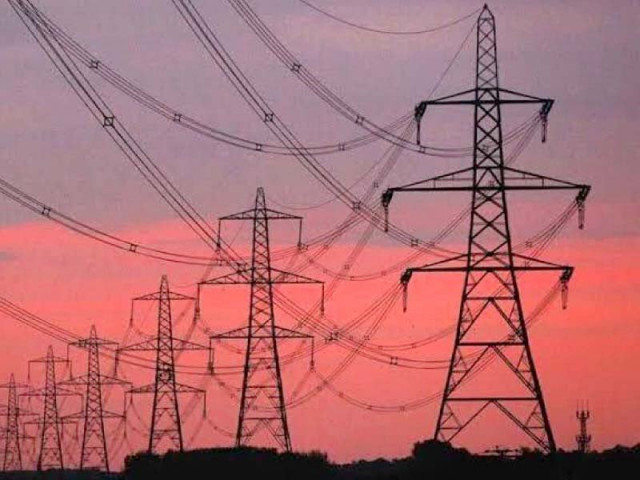Govt hints at withdrawing power subsidy for exporters
Technical talks with IMF extended into next week

Pakistan and the International Monetary Fund (IMF) have extended technical talks till Monday after gaps remained in their positions in areas of power, taxation and fiscal deficit but the authorities stood ready to slash all types of expenses and withdraw some unbudgeted subsidies.
The Pakistani authorities also had to clarify their position in connection with Prime Minister Shehbaz Sharif’s statement that the IMF team was “tough” on the country.
The premier’s statement placed the authorities in an awkward situation, requiring them to give an explanation to IMF's Mission Chief Nathan Porter.
Among the measures that the government stands ready to take include withdrawing general electricity subsidies for exporters. The government is also willing to give only targeted subsidies linked to the export proceeds.
The Public Sector Development Programme (PSDP) and some security-related expenditures may also be slashed to pass on the minimum increase in power prices and taxes to the common people.
On top of that, sources said there would be an increase in taxes and electricity prices to convince the IMF to declare the ongoing talks as “successful”.
“The technical talks are planned to end on Friday but discussions will continue on Monday in areas where the IMF needed further clarity on the data,” according to the government sources.
However, they clarified that the IMF had not doubted the credibility of the numbers this time.
Rather, it is the difference over the interpretation, according to the sources.
According to the people privy to these negotiations, the discussions had narrowed down to power sector circular debt and the consequent fiscal gap.
They added that differences still remained on the Federal Board of Revenue’s (FBR) ability to achieve the annual target of Rs7.470 trillion.
The IMF sees the fiscal gap in the range of nearly 1% of the GDP or about Rs800 billion.
However, according to the sources, the government has worked out this figure at around 0.7% of the GDP or Rs620 billion.
The sources added that these projections would hopefully be bridged by Monday during the next round of technical discussions.
Once the gap is bridged, the IMF could share the first draft of the Memorandum for Economic and Financial Policies (MEFP) on Tuesday, a development that might lead to the start of policy talks.
The sources said there was a possibility that the IMF would impose some prior actions that Pakistan would have to take before the board meeting for the approval of the loan request.
The officials clarified that so far, the talks were held only for the 9th review for the release of $1.1 billion tranche.
Depending on the progress made by both sides, there was a possibility that the IMF might club together the next two reviews -- the 10th and 11th.
The Power Division had presented a Rs952 billion circular debt flow plan to the IMF but the global lender did not agree to the assumptions, said the sources.
They added that the quantum of the unbudgeted subsidies had now been projected at Rs605 billion as against Rs675 billion presented earlier.
The IMF understood that the government was not in a position to withdraw farmers’ electricity subsidy.
It also endorsed the government's stance that the Azad Jammu and Kashmir’s (AJK) subsidies could not be withdrawn at this stage.
Similarly, the subsidy for tube-wells in Balochistan would continue.
However, there are many areas where subsidies will be withdrawn.
This includes the IMF’s demand to end the untargeted subsidy for the exporters, said the sources.
The IMF also appreciated the government's view that some of the measures related to the power sector’s chronic issues could not be taken in the short-term and might be implemented under the next global lender’s programme, whenever it was signed, the sources added.
They added that the petroleum secretary would give another briefing to the IMF on the gas sector’s circular debt. However, it was unlikely that the global lender would seek an increase in gas prices.
The sources said there were still some gaps against the revenue projections made by the FBR and the IMF teams against the annual target of Rs7.470 trillion.
This gap would be bridged with additional revenue measures, as the IMF did not agree that the FBR could achieve its annual target without taking new steps.
The FBR chairman would give another presentation to the IMF on Monday, the sources added.
Senior officials confirmed that the IMF demanded increasing the General Sales Tax (GST) to 18%, adding that the government was so far resisting the demand.
They said at this stage, the government was also not accepting the demand to restore the GST on petroleum products, but the situation would be clear next week.
To a question whether the military expenses could also be slashed to minimise the need for additional taxes, the ministry’s officials said both the security expenses and PSDP were being considered for rationalisation.
In a bid to lower the impact of the increase in electricity prices and taxes, the government is going to enhance the monthly stipend of the Benazir Income Support Programme (BISP) beneficiaries.
The officials said that there was no difference of opinion between the two sides over the external financing requirements.



















COMMENTS
Comments are moderated and generally will be posted if they are on-topic and not abusive.
For more information, please see our Comments FAQ